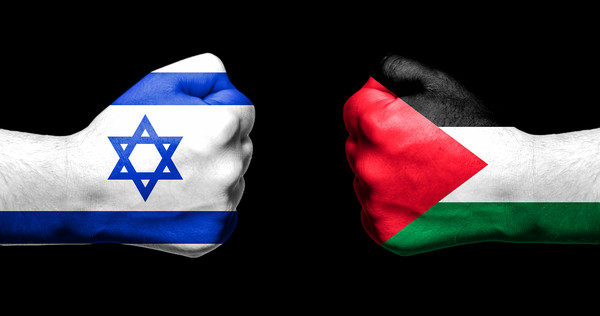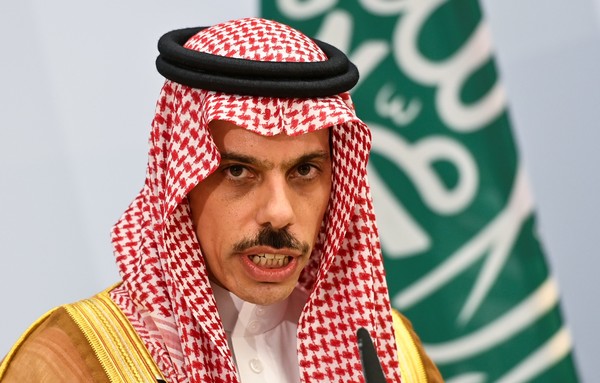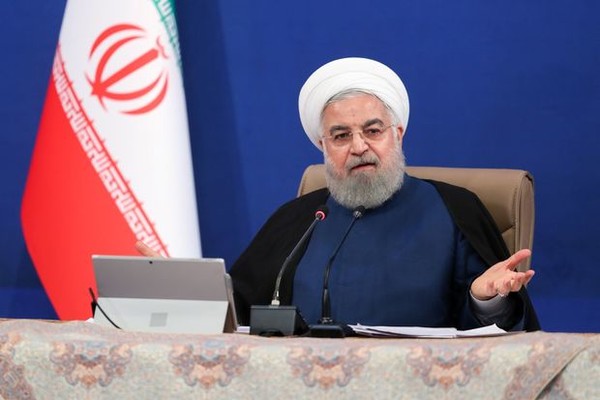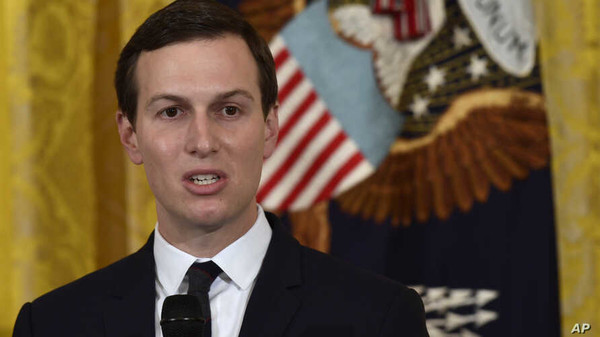Israel is a country that has long been the center of controversy. From the identity of the nation, to its long dispute with Palestine, it continues to be a controversial topic. The Israeli-Palestinian conflict has played a major role in bringing Israel to hostile relations with most of the Arab countries. Until recently, the Arab countries have maintained anti-Israeli attitudes. However, news that Israel and the UAE signed a peace agreement on August 13th with U.S. mediation is expected to change the geopolitical situation in the Middle East. Trump praised the agreement, also called the ‘Abraham Accord,’ as a historic agreement, which is predicted to be have significant effect. Let's have a look at what the peace deal between the two countries is, how it was made, and what changes it will bring.
The Peace Deal Between Israel and the UAE

On August 13th, U.S. President Donald Trump issued a statement saying that his mediation resulted in Israel and the United Arab Emirates (UAE) agreeing to normalize diplomatic relations between the two countries by signing a peace agreement. "Israel and the UAE made a historic agreement," he said on his Twitter account the same day. It reveals the agreement among the three countries by Israel Prime Minister Benjamin Netanyahu, UAE Abu Dhabi’s Crown Prince Sheikh Mohammed bin Zayed Al Nahyan, and U.S. President Trump. The deal makes the UAE the first Gulf country to establish diplomatic ties with Israel, and the third Arab country, after Egypt and Jordan, to do so. In the White House statement, Israel and the UAE agreed to sign a cooperation agreement regarding aviation, investment, tourism, security, technology and energy, as well as to set up direct flights and embassies. It also said that Israel has decided to stop merging the West Bank which is Palestinian territory legally. The UAE expressed its position on the agreement, which puts significance in preventing Israel's annexation plans of the West Bank than in simply establishing ties with Israel. According to Reuters, on August 13th, the UAE's Minister of State for Foreign Affairs Anwar Gargash said the deal had helped defuse what he called the ticking time-bomb of Israel’s planned annexation of settlements in the occupied West Bank that was threatening a two-state solution. The two-state solution is one of the solution for Israeli-Palestinian conflict to create independent Israel and Palestine and make them coexist peacefully. Therefore, the UAE emphasized preventing the annexation plans through the deal, which would contribute to the peace of the two countries.
Israeli-Palestinian Conflict and Situations in the Middle East

The Israeli-Palestinian conflict began in 1948 when Israel established an independent state in Palestine in the eastern Mediterranean region. Jews lived scattered worldwide after failing to fight for independence from Rome twice in A.D. 70 and 135. Then, when the anti-Jewish movement took place in the late 19th century, Jews responded against the movement by engaging in ‘Zionism,’ a nationalist movement aimed at building a Jewish country in the Palestinian region, and began to return to the Palestinian land. The U.K, which ruled Palestine at the time, promised the Arabs in Palestine to build an Arab state there. In 1917, however, British Foreign Secretary Balfour declared that he "supported Zionism in building a Jewish state in Palestine." This was the background of the Israeli-Palestinian conflict. After World War II, Jews clashed with neighboring Arab countries when they founded Israel in 1948. The Arabs who lived in Palestine became refugees and lived in the West Bank, the border of Israel and Lebenon, and the Gaza Strip along the Mediterranean coast. Then they organized the Palestine Liberation Organization in 1964 to protest against Israel’s actions. The region has been in conflict since, including the Six-Day War in 1967, and Yom Kippur War in 1973.
The most important point in the Israeli-Palestinian conflict is the sovereignty of East Jerusalem. The UN decided in 1948 that East Jerusalem should be placed under international jurisdiction, but Israel took it over during the Six-Day War in 1967. Neither country officially gives up its sovereignty as the Jewish and Islamic holy places in the Old City of East Jerusalem. The Holy See continued to suggest an alternative to granting internationally guaranteed special status on East Jerusalem, but the two countries have yet to accept it. Under these situations, Arab countries in the Middle East, which follow Islam, including the UAE have been hostile to Israel with support to Palestinians believing Islam.
Middle East Countries with Mixed Responses to the Peace Deal
Countries Including Saudi Arabia Being Positive to the Peace Deal

Saudi Arabia, which serves as an Islamic leader, had drawn attention from around the world. Saudi Arabia has a close relationship with the U.S. But the kingdom had repeatedly said it supports an independent Palestinian state believing in Islam, and has not recognized Israel as a state. Saudi Arabia remained silent until August 19th, unlike other countries announced their positions right after the peace deal. Saudi Foreign Minister Faisal bin Farhan said the deal could be viewed positively in that it prevented Israel’s annexation of the West Bank. Prince Turki Al-Faisal of Saudi Arabia also said, "The Kingdom of Saudi Arabia has set a price for concluding peace between Israel and the Arabs - it is the creation of a sovereign Palestinian state with Jerusalem as capital”. This statement means recognizing Palestinian sovereignty because Palestine is not fully recognized as an independent state. Bahrain and Oman also publicly expressed their support for the deal. Bahrain's state-run news agency, BNA, and Oman's state-run news agency, ONA, reported the deal as “historic”. Egypt, the first Arab country to normalize relations with Israel in 1979, also celebrated the deal. Egyptian President Abdel Fattah el-Sisi said on his Twitter account that he “value the efforts of those in charge of the deal to achieve prosperity and stability for our region".
Iran, Turkey, Palestine Opposing the Peace Deal

On August 14th, the day after the announcement of the peace deal, Iran's Foreign Ministry issued a statement saying that they strongly condemn the normalization of diplomatic relations between the UAE and Israel, the Zionist regime, and criticized that this agreement as a "dagger in the back" to all Muslims. Iran has supported Palestine's armed struggle against Israel. So, they dismissed the UAE’s recognition of Israel as a betrayal of Palestine and other Arab countries, unlike how Arab Muslim countries have previously had hostile relations with Israel. Iranian President Hassan Rouhani said on August 15th that the UAE helped Israel create a bridgehead in the Middle East, adding that the UAE had made a huge mistake. Iran's Revolutionary Guard added their voice, calling the deal a ‘shameful’ agreement and an ‘evil action’ that was underwritten by the U.S., according to its website, Sepah News. They also warned that the deal will set back American influence in the Middle East and bring a ‘dangerous future’ for the Emirati government. For Iran, it seems like Israel had signed a peace deal with the UAE, a Sunni Muslim country, to keep Iran, a Shia Muslim country, in check. Iran could worry a joint front against them that could come from friendly relations with Israel.
Turkey has also expressed strong opposition to the peace deal between Israel and the UAE. This is because Turkey also regarded the deal as betraying the Palestinian cause; Turkey is currently in a military confrontation with the UAE and Saudi Arabia in Libya. According to Reuters, Turkish President Recep Tayyip Erdogan even mentioned a break in diplomatic relations with the UAE on August 14th. According to MBN, this can be interpreted that the Turkish president's statement shows Turkey's political and religious ambitions to become the de facto leader of Islamic countries in the Middle East while competing with Saudi Arabia and Iran. Palestine, which has been in conflict with Israel, was also naturally opposed to the deal. On August 14th, the day after the agreement was announced, protests against the deal were held in the Palestinian Gaza Strip and East Jerusalem. According to the Associated Press, the Palestinian Authority has defined the deal as “betrayal of Jerusalem, Al-Aqsa Mosque and the Palestinian cause.”
What Will Be the Future of the Middle East?

The Abraham Accord is so significant that President Trump mentioned it as a ‘historic peace agreement’ on the day it was announced. The peace agreement is significant because it could cause major changes in the situation of the Middle East. Previously, Arab Muslim countries have had hostile relations with Israel due to the Israeli-Palestinian conflict. According to Yonhap News Agency, a geopolitical outlook has been predicted in which the peace deal could lead to friendly relations with Israel, starting with the UAE, and form a joint front against Iran. Israel also announced on August 18th that its prime minister agreed to U.S. sanctions against Iran. It is expected to be a further burden on Iran, which fears a new joint front against them will emerge.
The U.S., which acted as a mediator for the peace deal, is eager to reorganize the power structure in the Middle East. Trump had assigned his son-in-law and White House senior advisor, Jared Kushner, to lead the Middle East peace negotiations. At a press conference held after the peace deal on August 13th, he said he would strive to normalize relations between Israel and other Middle East countries more in the future. He also mentioned Saudi Arabia, Bahrain, and Oman as additional targets of agreement. After all, the peace agreement is expected to signal a change in the situation of the Middle East, which creates friendly relations between Arab countries and Israel, which has been many countries’ target for a while.
The peace agreement between Israel and the UAE was not just an agreement between the two countries. Even though the deal was announced between the two countries, it needed U.S. mediation, which led to loosen the strained relations between the two countries. Israel has conflicted with Palestine because of Jewish and Muslim religious issues, and it has led to unfriendly relations with other Arab countries that follow Islam. As such, the Abraham Accord would have a great impact on the change in the situation of the Middle East. Countries that view the agreement favorably and those who oppose it fiercely are clearly contrasting. Many predict that a joint anti-Iran front will gradually be formed after the normalization of relations between Israel and the UAE. Attention from over the world will be drawn to how the situation in the Middle East will change.

